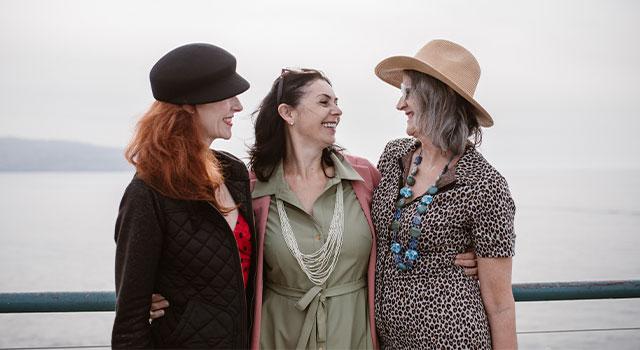 Around 61% of perimenopausal and menopausal women are affected by dry eye syndrome.
Around 61% of perimenopausal and menopausal women are affected by dry eye syndrome.
During menopause, the body produces less estrogen, progesterone, and androgen, causing a variety of uncomfortable symptoms such as sweating, insomnia, and hot flashes.
Among these physical symptoms is dry eyes, characterized by dry, itchy and burning eyes.
If you're experiencing dry eyes, contact Giddens Optometry today for effective and lasting dry eye treatment.
Biological Changes That Affect Your Eyes
During menopause, the androgen hormone decreases, affecting the meibomian and lacrimal glands in the eyelids. The meibomian glands produce the essential oils for the tears, so the reduction in oil results in increased tear evaporation and drier eyes.
When these fluid and oil-producing glands are affected, the eyelids can become inflamed, reducing tear quality and production, resulting in dry eye syndrome.
Some researchers believe that dry eye is connected to changes in estrogen levels. This explains why many women experience dry eye symptoms during certain times of a woman’s monthly cycle, or while taking birth control pills.
Symptoms of dry eye syndrome
- Red eyes
- Burning in the eyes
- Itchy eyes
- Blurred vision
- Gritty feeling in the eyes
- The feeling something is caught in your eye. Excessive tearing
How Is Hormone-Related Dry Eye Treated?
Because reduced hormones during and after menopause can cause meibomian gland dysfunction, treatment should be focused on reducing dry eye symptoms.
Dry eye treatments can include:
- Artificial tears
- Lubricating eye drops
- Eyelid hygiene
- Oral antibiotics
- Corticosteroid eye drops
- Medications that reduce eyelid inflammation
- Punctal plugs - to reduce tear flow away from the eyes
Q: Are there home remedies to treat dry eye syndrome?
- A: Yes. Here are a few things you can do at home to reduce dry eye symptoms.Limit your screen time. People who work at a computer all day blink less, which harms the tear film. Remember to take frequent breaks and to blink.
Protect your eyes. Sunglasses that wrap around your face can block dry air and wind.
Avoid triggers. Irritants like pollen and smoke can make your symptoms more severe.
Try a humidifier. Keeping the air around you moist may help.
Eat right. A diet rich in vitamin A and omega-3 fatty acids can encourage healthy tear production.
Warm Compress. A warm compress will improve oil flow through your eyelid glands and clean your eyelids.
Q:Can dry eye syndrome damage your eyes?
- A: Yes. Without sufficient tears, your eyes are not protected from the outside world, leading to an increased risk of eye infections. Severe dry eye syndrome can lead to abrasions or inflammation on the cornea, the front surface of the eye. This can cause pain, a corneal ulcer, and long-lasting vision problems.Menopause causes many changes throughout your body. If you’re experiencing dry eye symptoms due to hormonal changes, contact Giddens Optometry to find out what dry eye treatments are available to give your eyes relief.
Giddens Optometry serves patients from Georgetown, Limehouse, Acton, and Halton Hills, all throughout Ontario.